Slight Exposure
Found photographs hand-altered with embroidery and collage, transforming pictures that were somehow incomplete.

Interview by Rosecrans Baldwin
The Morning News: When did the attraction to vintage photographs begin?
Julie Cockburn: Since childhood I have always loved the quality of Technicolor films, and I grew up on a diet of Fred Astaire and Ginger Rogers musicals and Dad’s homemade cine-films. Continue reading ↓
Slight Exposure is on view through Jan. 25, 2014, at Yossi Milo Gallery, New York. All images used with permission, © copyright the artist, all rights reserved.
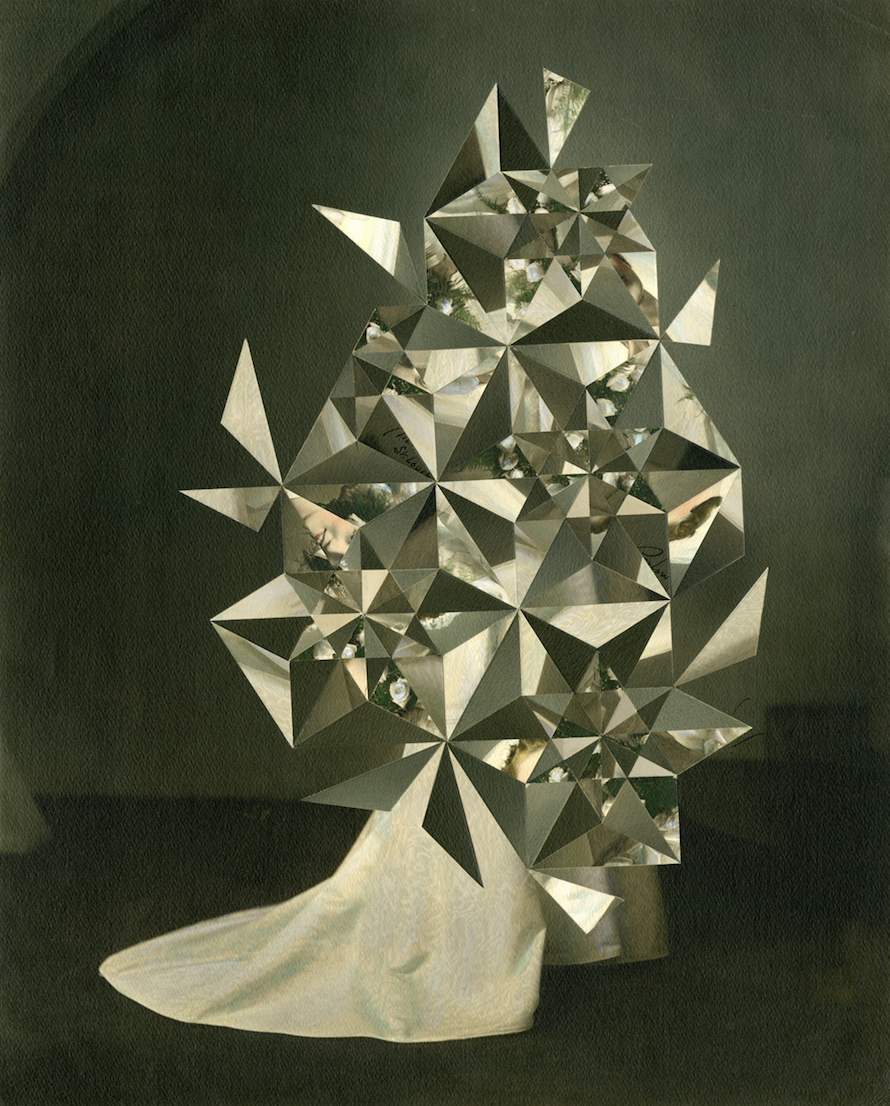
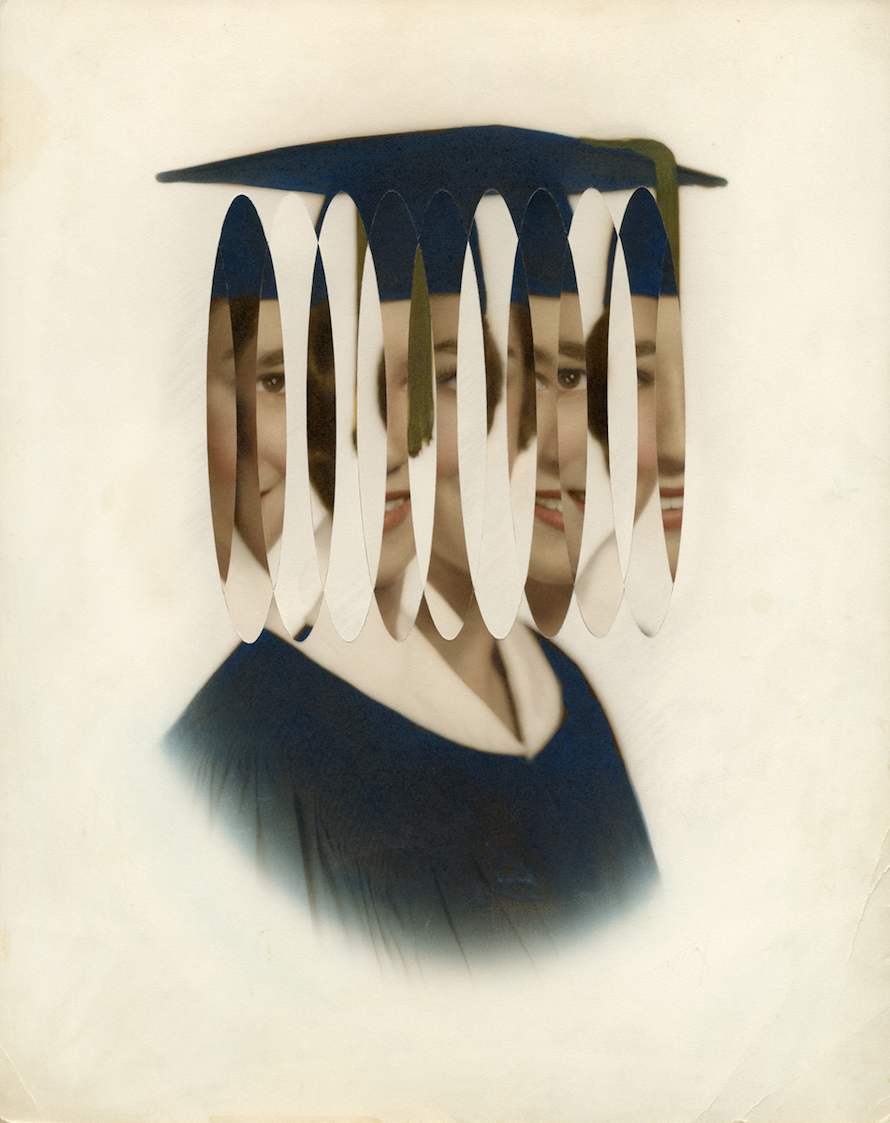
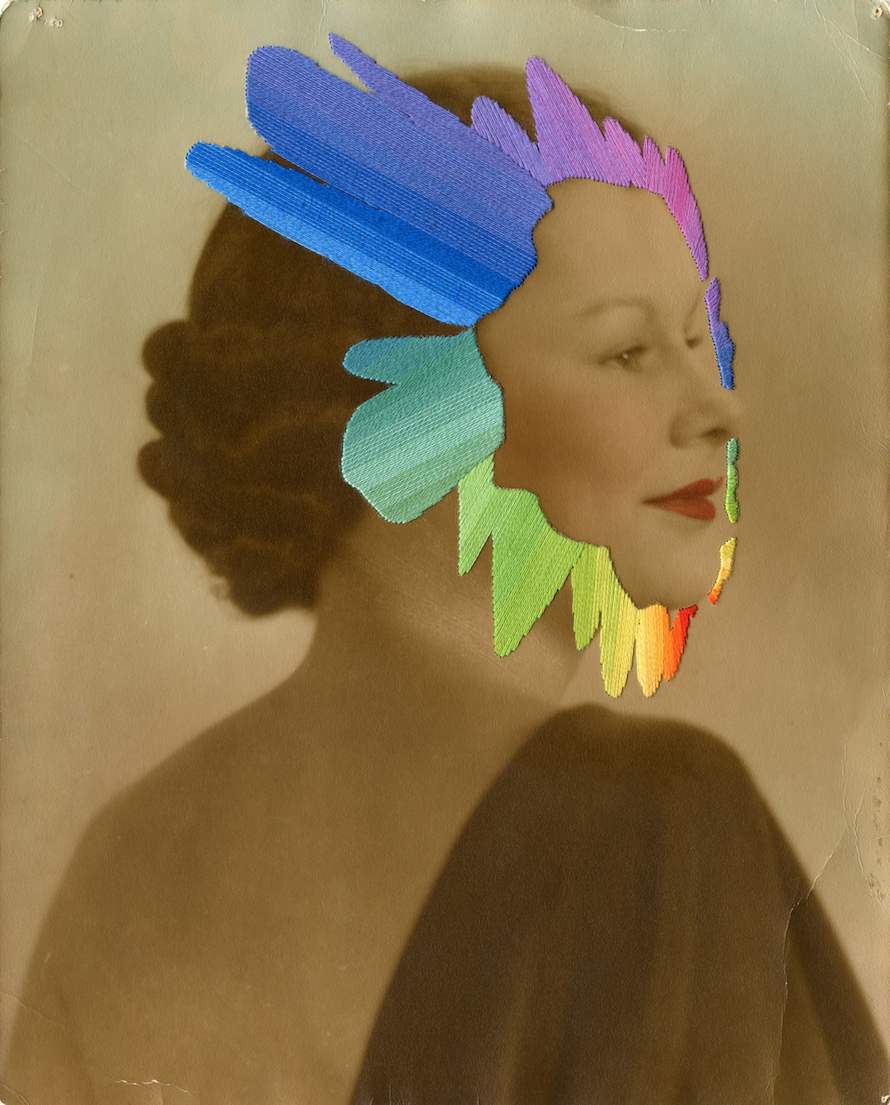
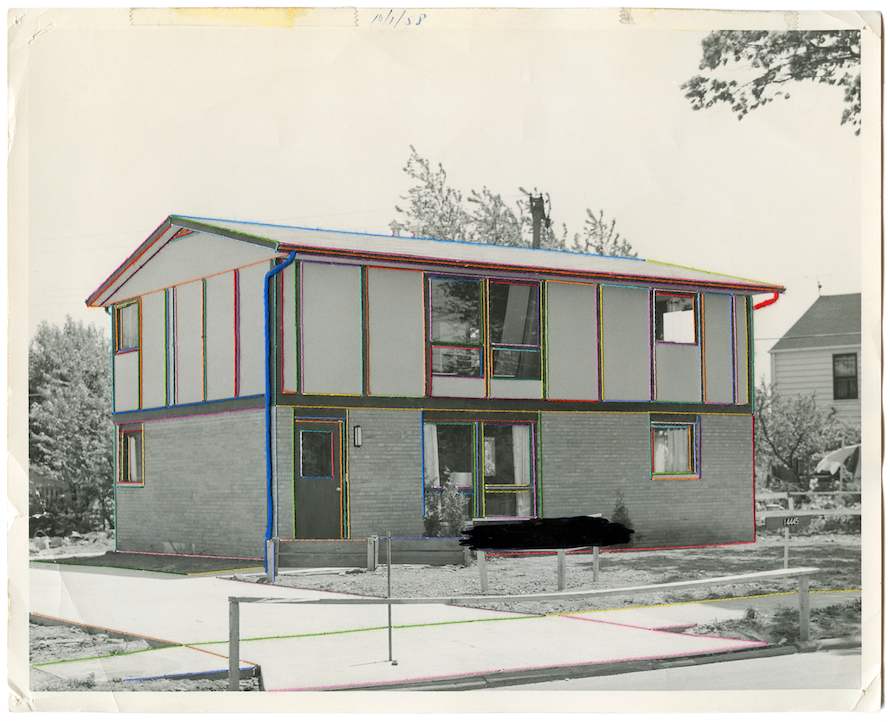
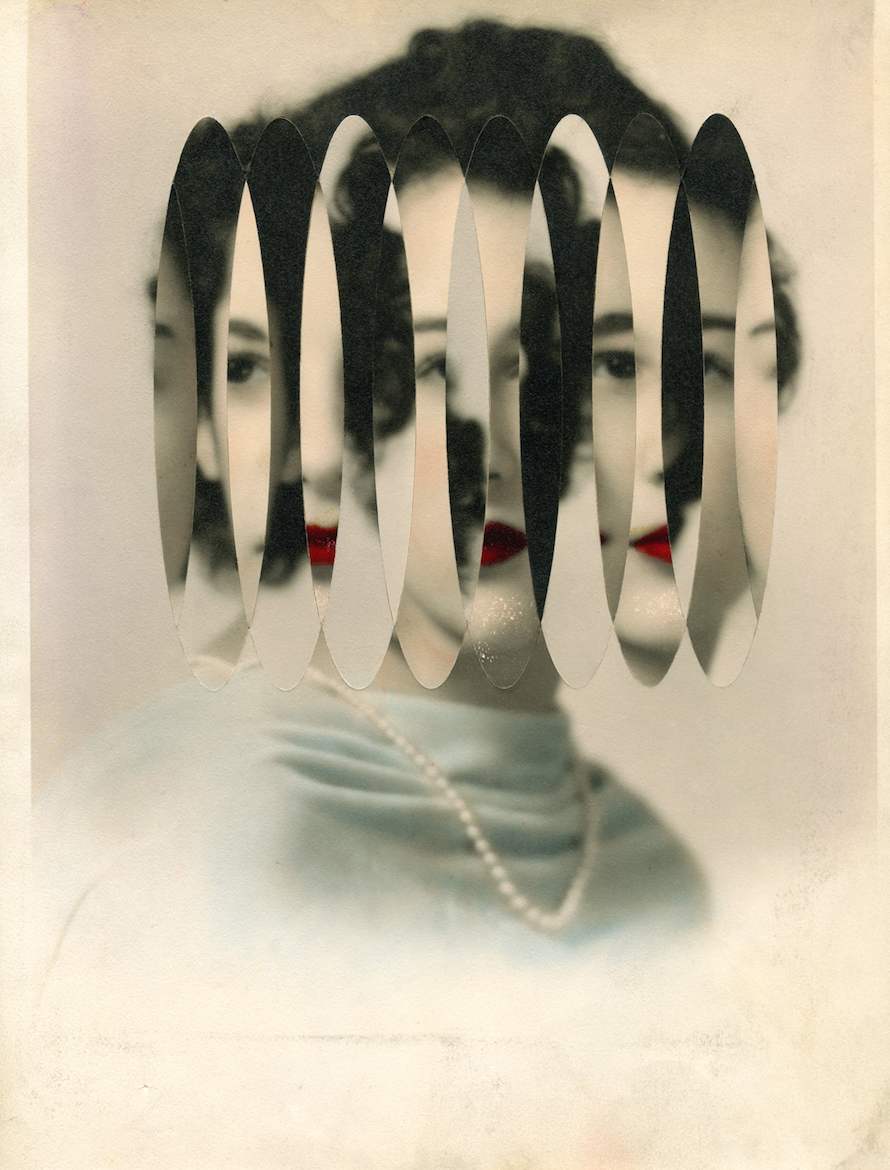
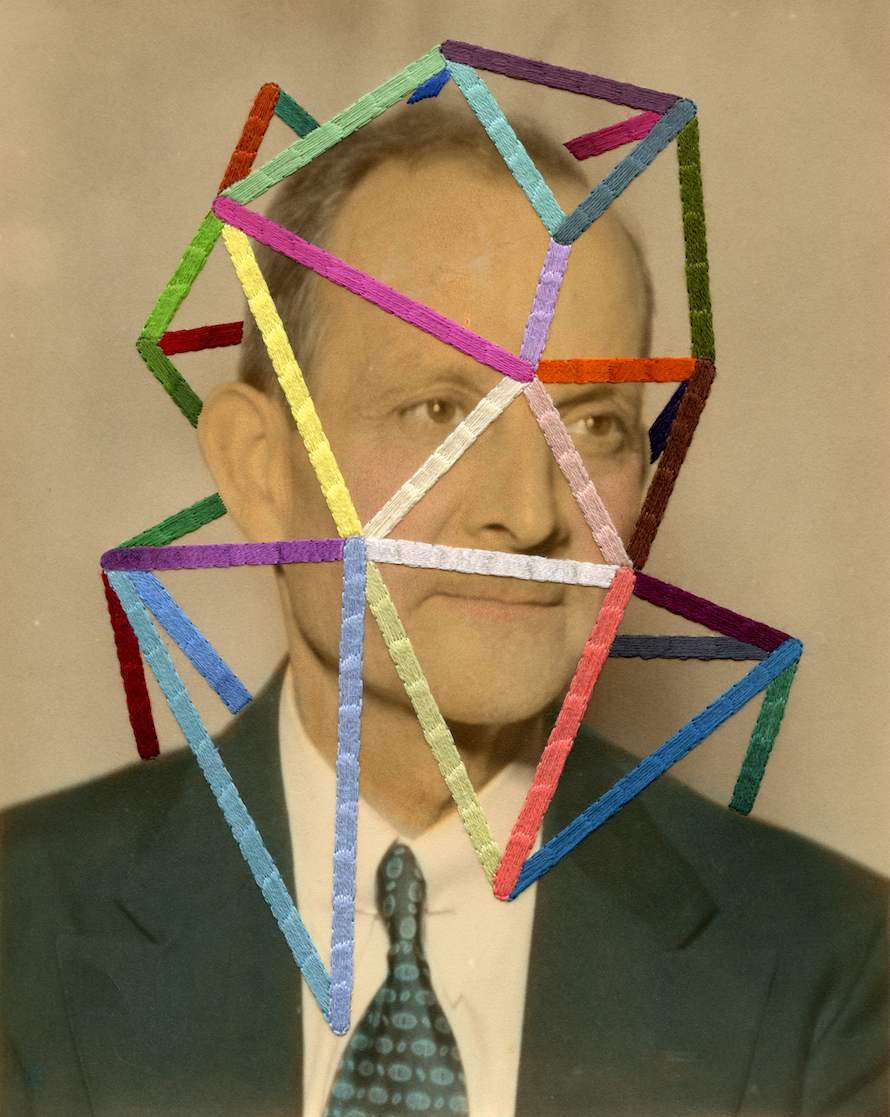
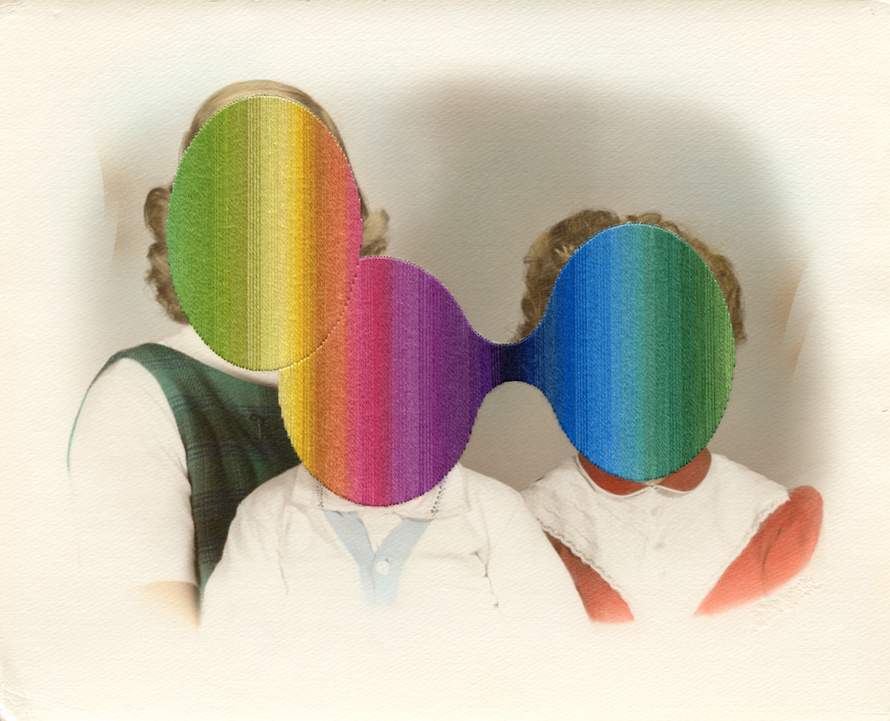
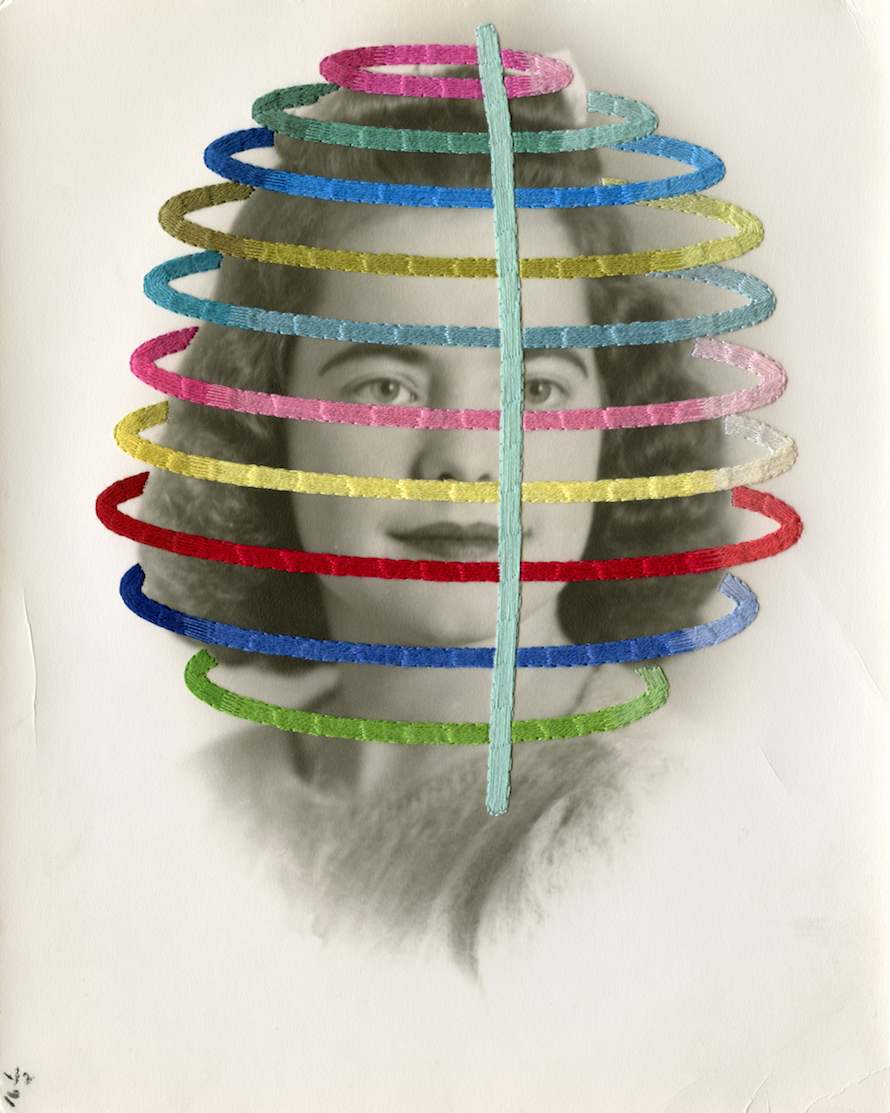
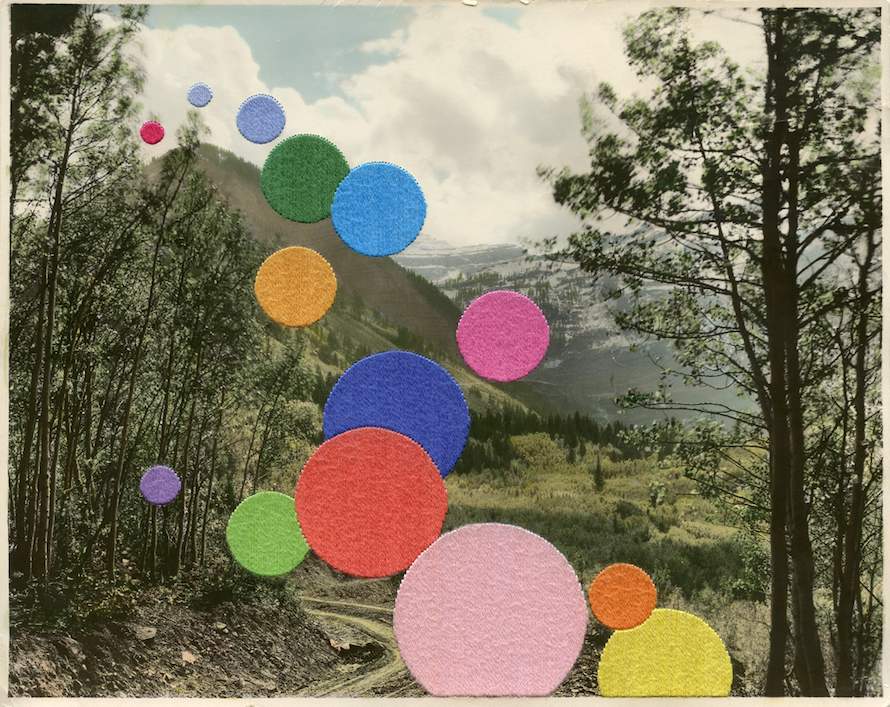
Interview continued
TMN: You’ve said before that your work, in a way, “completes” the original image. How do you know when an image needs completion?
JC: I sometimes think photographs need an extra dimension—something to do with the lack of physical texture promised by the image. A successful piece is one where my intervention appears almost to belong to the original. My job, as I see it, is to discover the formal, textural, and compositional layer that will ultimately appear integral to the photograph.
TMN: How do you rate yourself as a dinner-party conversationalist?
JC: Not bad, if the subject stays away from history or politics. Or literature. I love talking to people about themselves—I’m not so good at talking about myself.
TMN: When was the last time you saw another artist’s work and felt disoriented?
JC: Most performance art.
TMN: What is your work day like? Do you nap?
JC: I have to be fairly regimented about my working day as some of the work I make is so time-consuming. I take my dog for a walk in the morning in my local park, have coffee, and then go to the studio. I navigate my day by BBC Radio 4—when the early evening news program comes on, it’s time to go home.
If I’m not working in the studio, I sometimes take a nap, although I always feel guilty about it. I prefer to call it a siesta.
TMN: I’ve seen people describe your work as “defacement,” but to me it seems anything but—much more loving than that.
JC: I think they are beautiful, caring, and loving, yes. Most of the found photos or paintings I use in my work have been lost by their original owners. They are sold as house clearance job lots or at garage sales. They are often creased, cracked, dusty, flaky, and broken. I think what I do revitalizes them, both physically and emotionally.
TMN: What do you typically fall in love with too fast?
JC: Nothing these days. My father’s greatest advice to me: “Pause a minute.”
